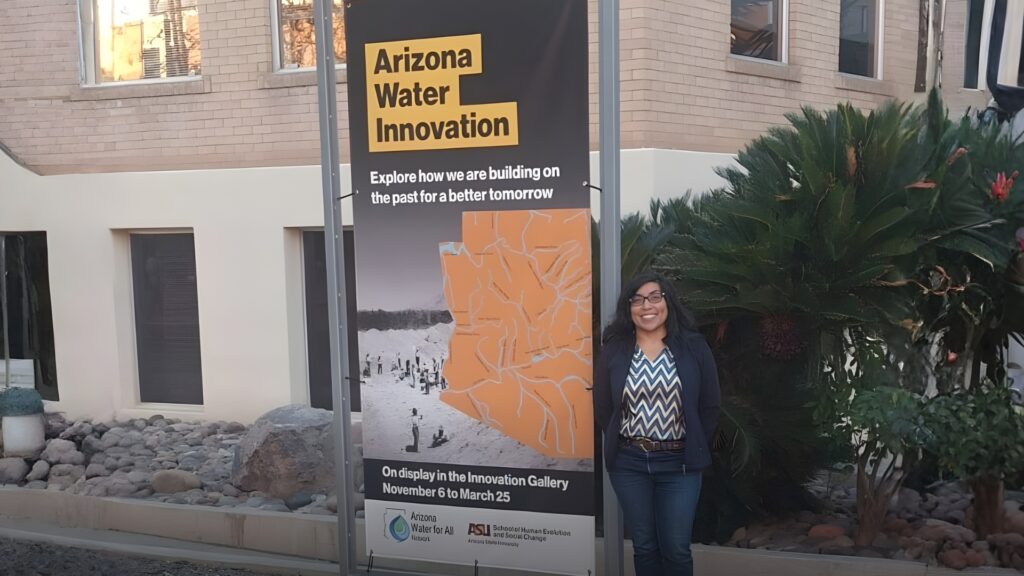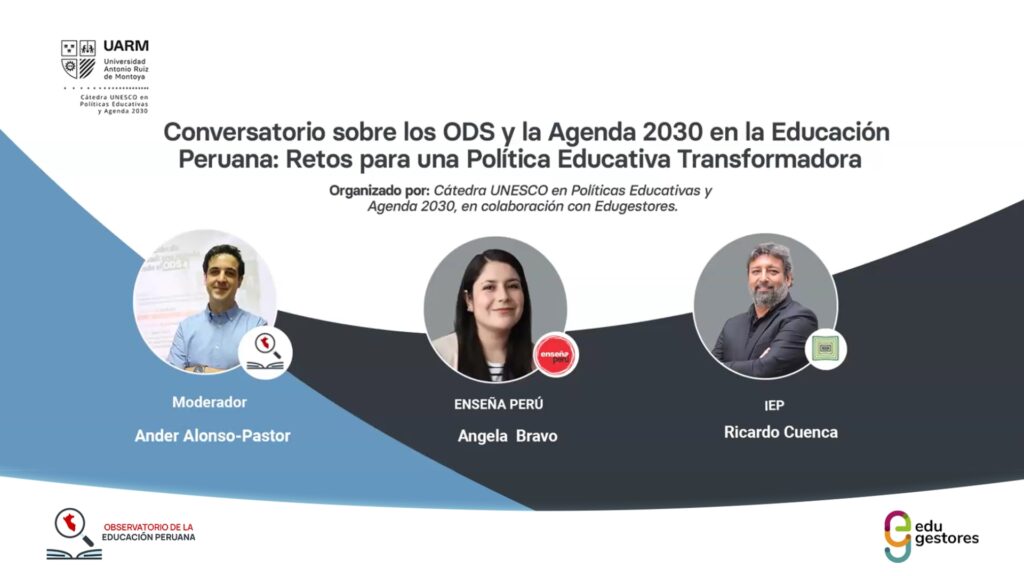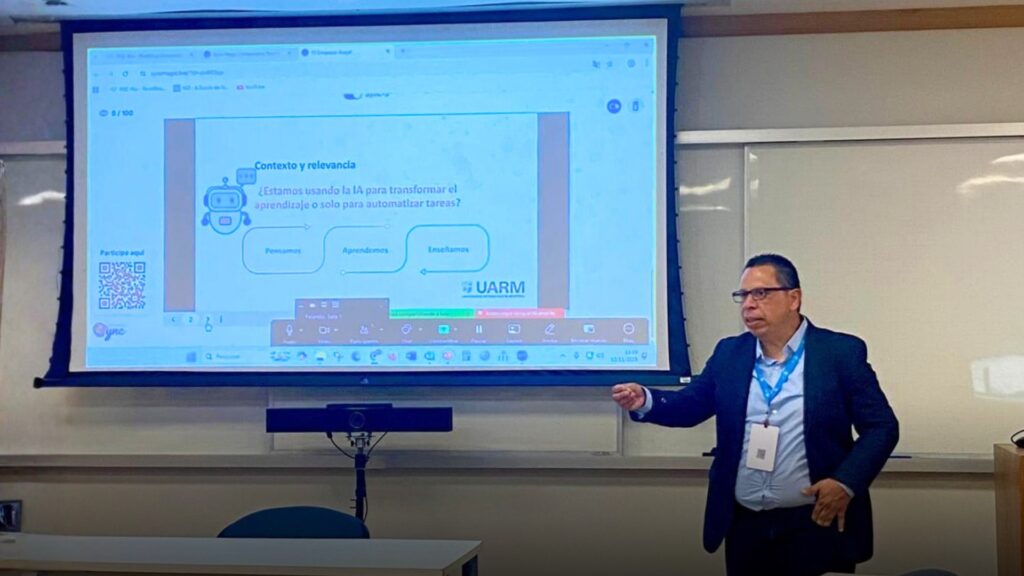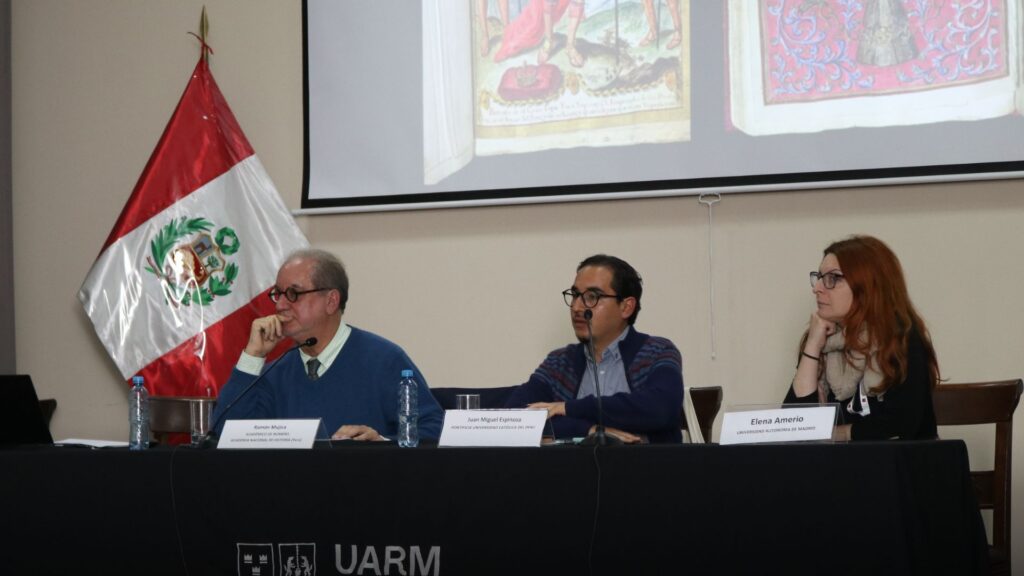
The International Symposium on Jesuit Studies, taking place from May 27 to 29, continued its second day with presentations centered on the social apostolate in the Peruvian context. Organized by Institute for Advanced Jesuit Studies at Boston College and Antonio Ruiz de Montoya University, the event brings together lay and Jesuit scholars from around the world to strengthen an academic community committed to dialogue and the Jesuit mission.
Presentations that Deepen the Jesuit Mission
The academic session was chaired by Fr. Juan Dejo, SJ, and held under the theme “Social Apostolate in Peru.” Historian Elena Amerio from Autónoma de Madrid University opened the panel with the presentation “Porque toman bien la lengua de acá”, in which she explored the role of Italian Jesuits in the doctrina of Juli during the 16th and 17th centuries, highlighting the importance of language and local culture in evangelization efforts. Juan Miguel Espinoza, MA, from the Pontifical Catholic University of Peru, analyzed the impact of the Second Vatican Council on the Jesuit Province of Peru and how this process led to a reinterpretation of the social apostolate as a missional practice. Finally, anthropologist Ramón Mujica presented an analysis of Jesuit Andean art as a visual strategy for social engagement and political-religious accommodation.
At the end of the presentations, a Q&A session offered attendees an opportunity to further engage with the panelists, enriching the academic exchange. These interventions provided valuable insights into how the Jesuits have historically engaged with Peru’s social and cultural context, adapting their mission to local realities and building bridges between spirituality, art, and social transformation.
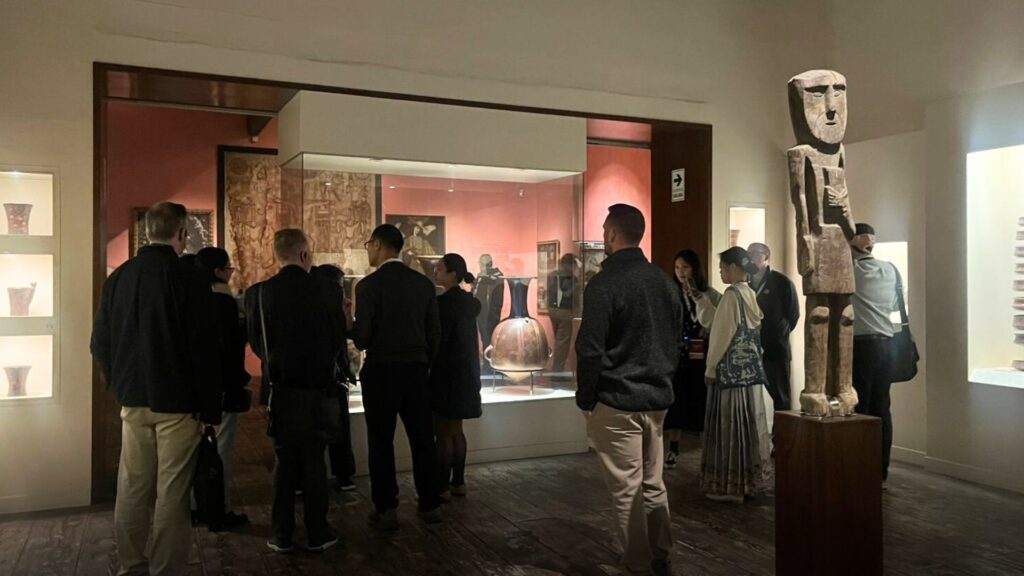
The day concluded with a cultural visit to the Larco Museum, located in the Pueblo Libre district. Participants enjoyed a guided tour of the museum’s collections, which showcased the richness of Peru’s pre-Columbian heritage. The evening closed with a fellowship dinner in the museum’s gardens, strengthening connections among attendees in an atmosphere of dialogue, history, and culture.
ES: Segundo día de simposio centrado en el apostolado social

El Simposio Internacional sobre Estudios Jesuitas, que se desarrolla del 27 al 29 de mayo, continuó su segundo día con ponencias centradas en el apostolado social en el contexto peruano. El evento organizado por el Institute for Advanced Jesuit Studies de Boston College y la Universidad Antonio Ruiz de Montoya, reúne a investigadores laicos y jesuitas de todo el mundo para fortalecer una comunidad académica abierta al diálogo y la misión de la Compañía de Jesús.
Ponencias que profundizan en la misión jesuita
La jornada académica de hoy fue presidida por el padre Juan Dejo, SJ y se desarrolló bajo el eje “Social Apostolate in Peru”. La historiadora Elena Amerio de la Universidad Autónoma de Madrid, abrió el panel con la ponencia “Porque toman bien la lengua de acá”, donde exploró el papel de los jesuitas italianos en la doctrina de Juli durante los siglos XVI y XVII, destacando la importancia del idioma y la cultura local en la labor evangelizadora. El magister Juan Miguel Espinoza de la Pontificia Universidad Católica del Perú, analizó el impacto del Concilio Vaticano II en la Provincia Jesuita del Perú, y cómo este proceso impulsó una reinterpretación del apostolado social como práctica misional. Finalmente, el antropólogo Ramón Mujica presentó un análisis sobre el arte jesuita andino como estrategia visual de compromiso social y acomodación político-religiosa.
Al cierre de las presentaciones, los asistentes participaron en un espacio de preguntas y respuestas que enriqueció el intercambio académico entre ponentes y asistentes. Estas intervenciones ofrecieron una mirada profunda sobre el modo en que los jesuitas han dialogado históricamente con el contexto social y cultural del Perú, adaptando su misión a las realidades locales y construyendo puentes entre espiritualidad, arte y transformación social.

La jornada concluyó con una visita cultural al Museo Larco, ubicado en el distrito de Pueblo Libre. Los participantes disfrutaron de una visita guiada por las colecciones del museo, que ofreció un recorrido por la riqueza del patrimonio precolombino del Perú. El día cerró con una cena de confraternidad en los jardines del museo, fortaleciendo los lazos entre los asistentes en un ambiente de diálogo, historia y cultura.


